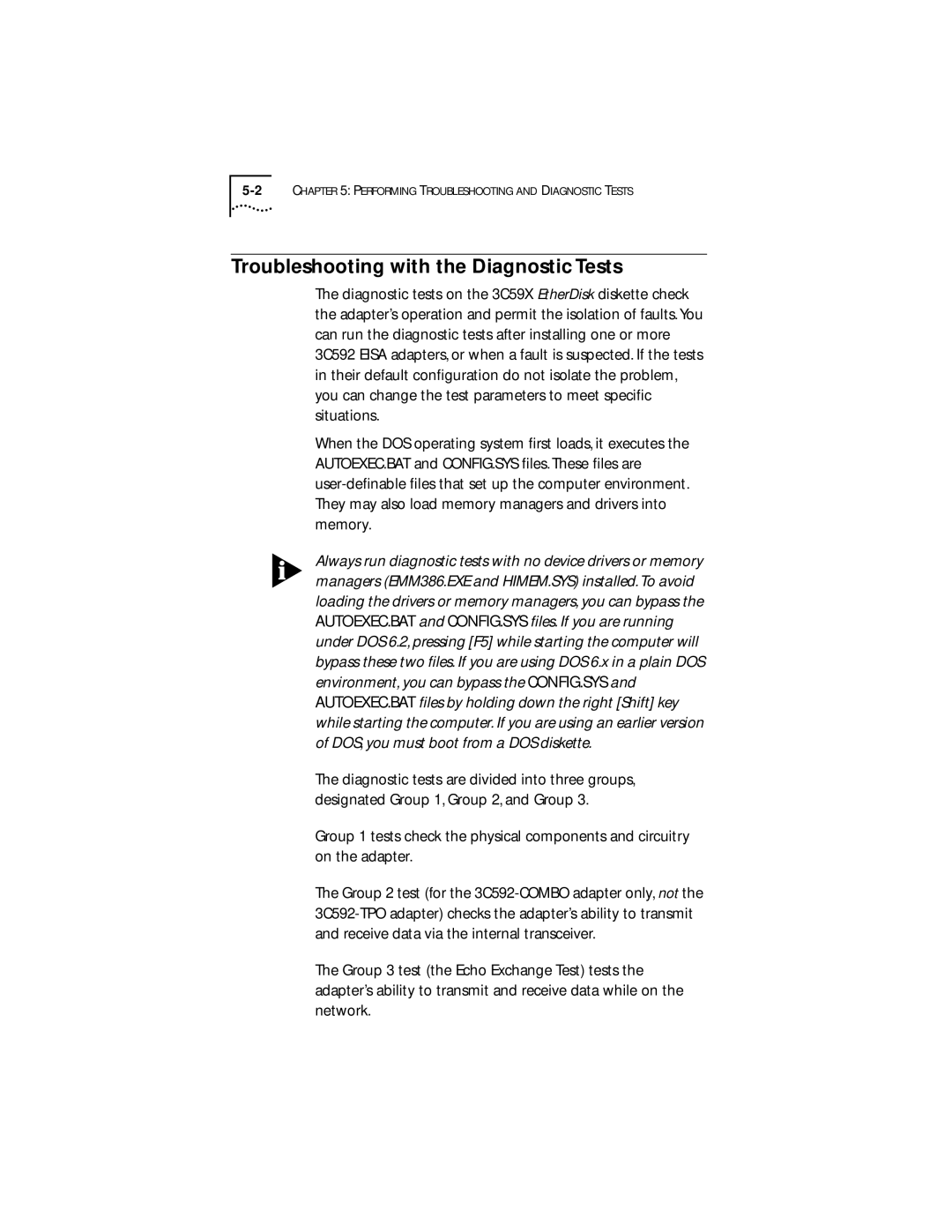
Troubleshooting with the Diagnostic Tests
The diagnostic tests on the 3C59X EtherDisk diskette check the adapter’s operation and permit the isolation of faults. You can run the diagnostic tests after installing one or more 3C592 EISA adapters, or when a fault is suspected. If the tests in their default configuration do not isolate the problem, you can change the test parameters to meet specific situations.
When the DOS operating system first loads, it executes the AUTOEXEC.BAT and CONFIG.SYS files. These files are
Always run diagnostic tests with no device drivers or memory managers (EMM386.EXE and HIMEM.SYS) installed. To avoid loading the drivers or memory managers, you can bypass the AUTOEXEC.BAT and CONFIG.SYS files. If you are running under DOS 6.2, pressing [F5] while starting the computer will bypass these two files. If you are using DOS 6.x in a plain DOS environment, you can bypass the CONFIG.SYS and AUTOEXEC.BAT files by holding down the right [Shift] key while starting the computer. If you are using an earlier version of DOS, you must boot from a DOS diskette.
The diagnostic tests are divided into three groups, designated Group 1, Group 2, and Group 3.
Group 1 tests check the physical components and circuitry on the adapter.
The Group 2 test (for the
The Group 3 test (the Echo Exchange Test) tests the adapter’s ability to transmit and receive data while on the network.
